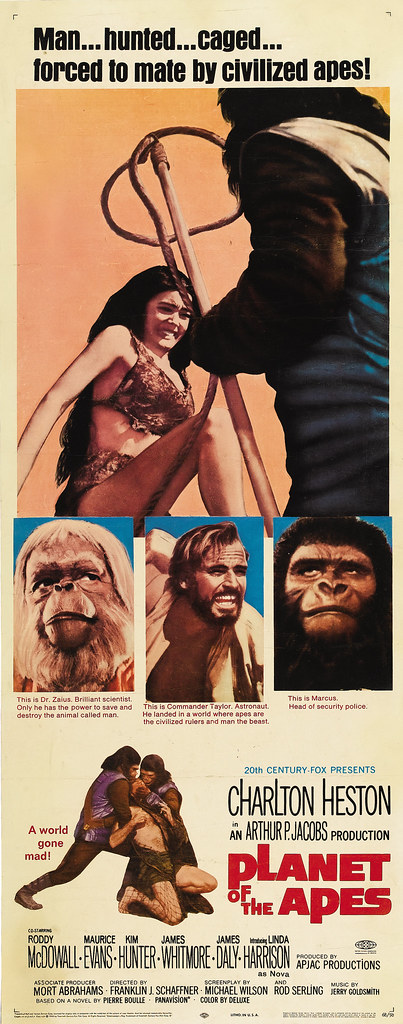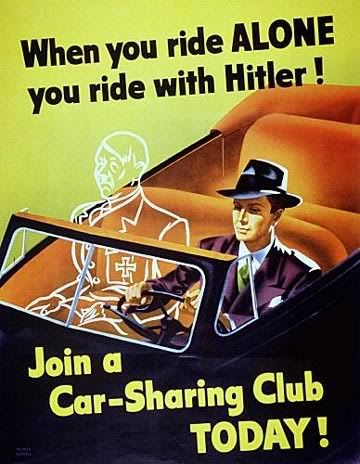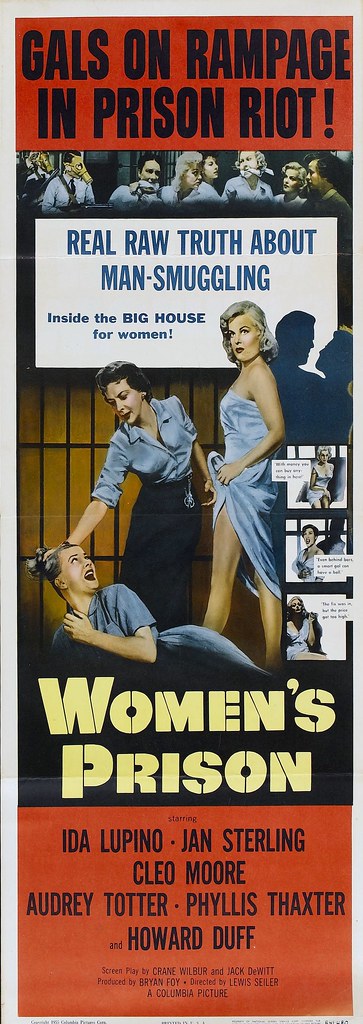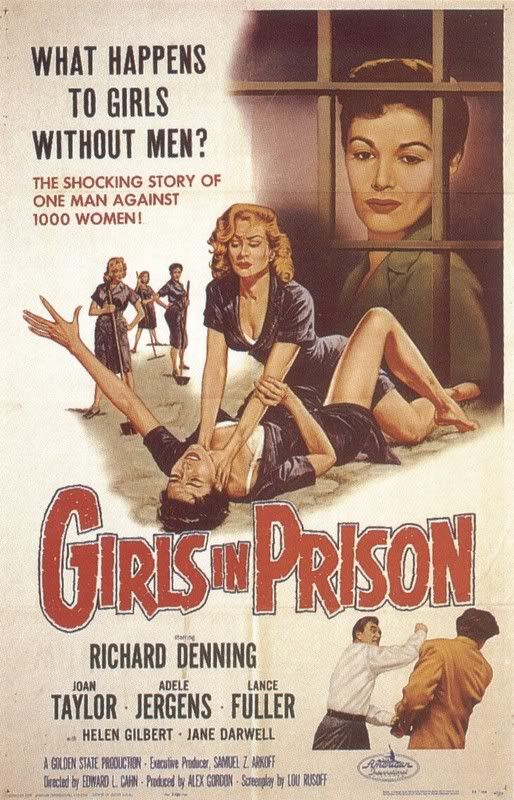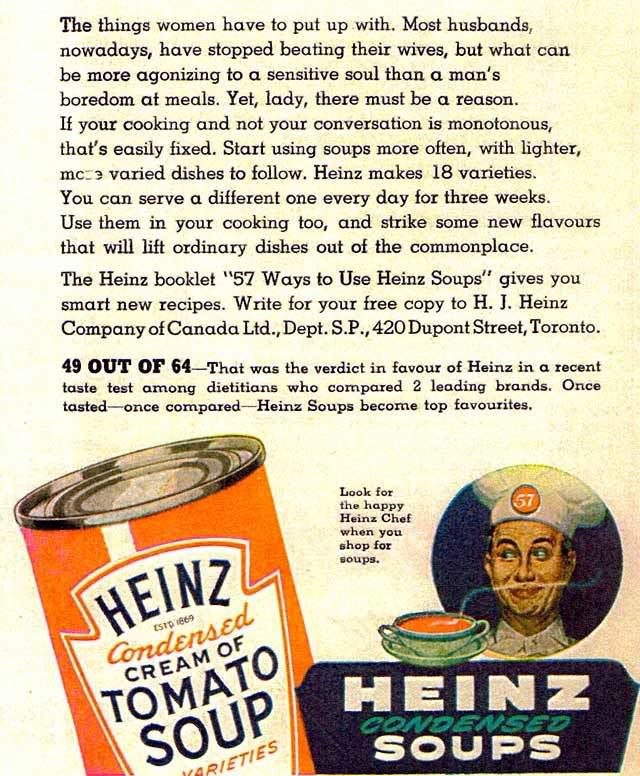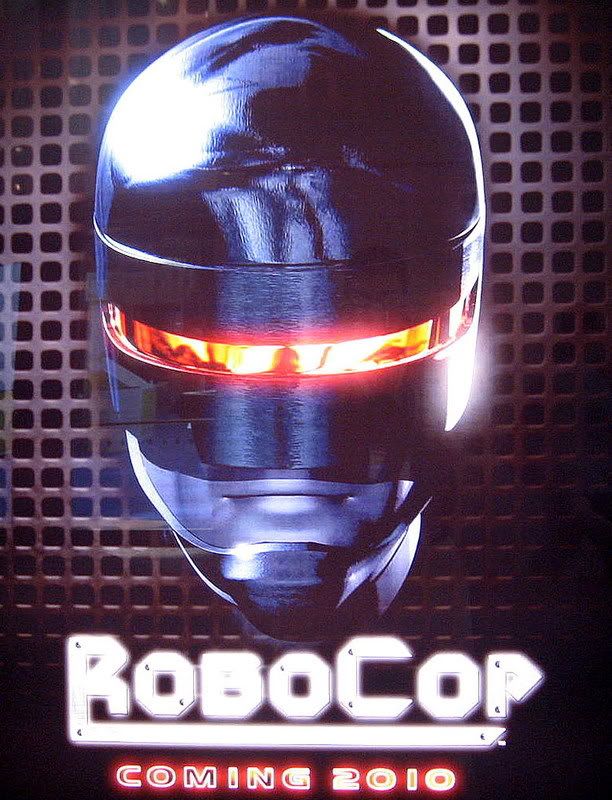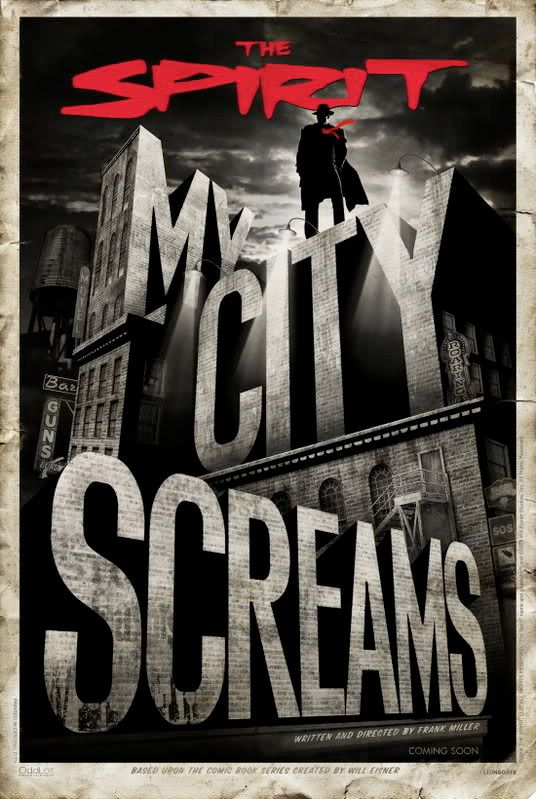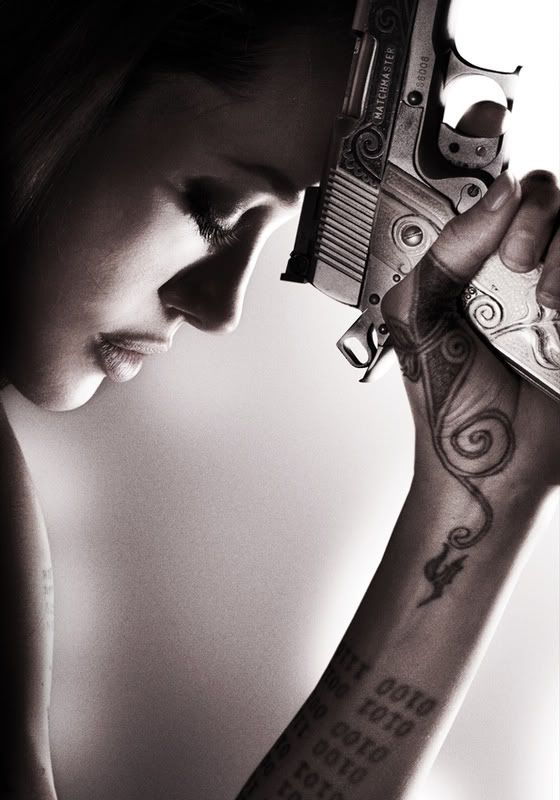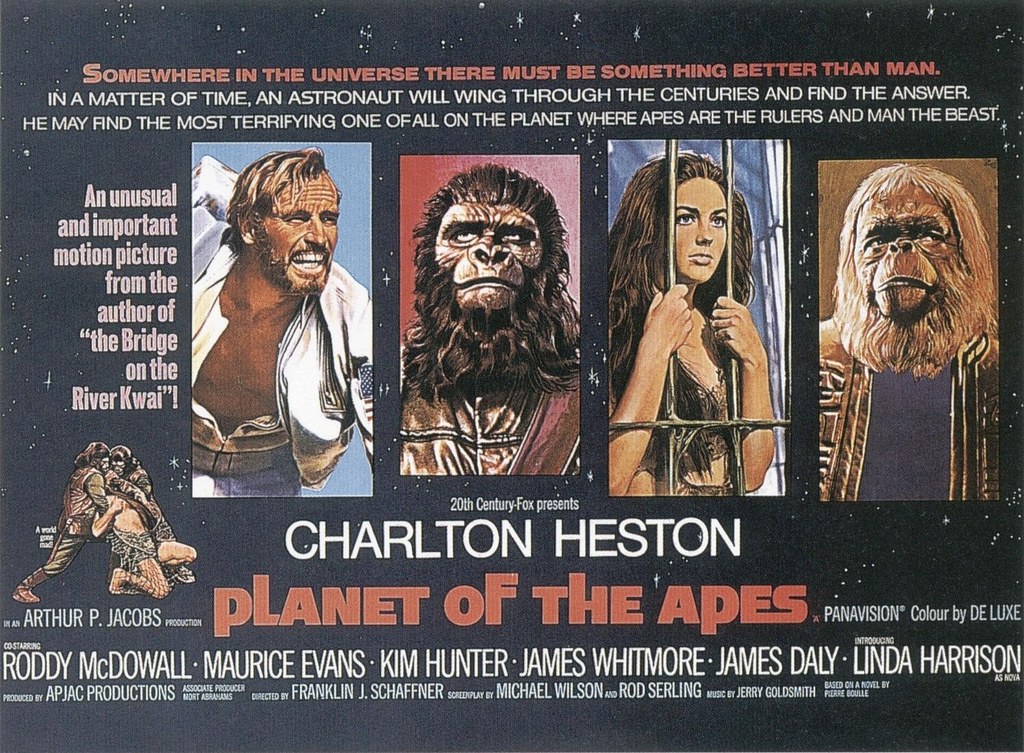
Sunday, June 29, 2008
Saturday, June 28, 2008
Friday, June 27, 2008
Press release of the day: Slipknot re-masked!
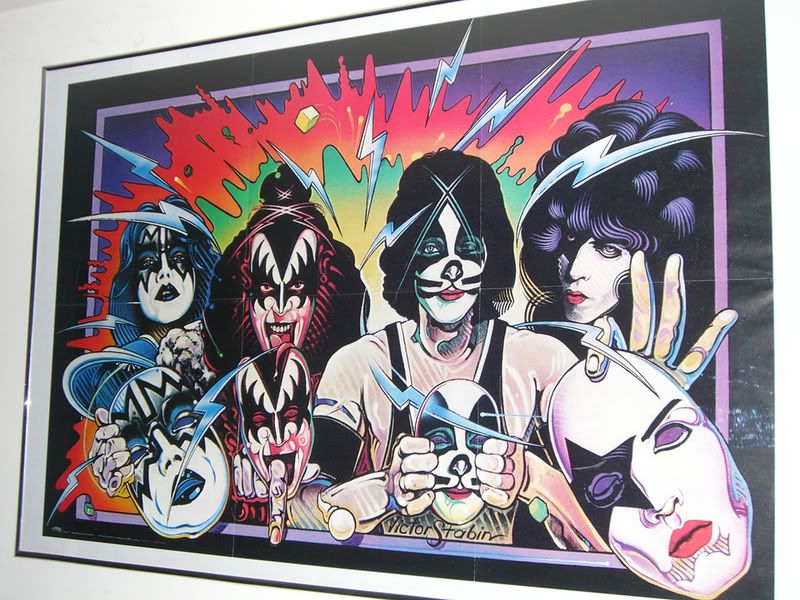
Slipknot is a groundbreaking nine-piece machine born out of Des Moines, IA. The band has sold over 10 million albums worldwide. Their last studio album VOL. 3: (THE SUBLIMINAL VERSES) was released in May 2004, debuted at #2 on the Billboard Top 200 Chart, selling over 240,000 copies its first week and 1.5 million copies in the U.S. to date. The album broke new ground for the band and spawned the hit singles “Duality,” “Vermilion” and “Before I Forget.” In November 2005 the band released SLIPKNOT 9.0: LIVE, a gold-certified double live album. December 2006 saw the release of the DVD Voliminal: Inside the 9. Certified platinum, it is a vivid, brutally honest glimpse of the world inside the band.
0
comments
Labels:
press release of the day
![]()
Thursday, June 26, 2008
Wednesday, June 25, 2008
Gary Glitter comeback album
HANOI, Vietnam: Former British glam rocker Gary Glitter, who is serving a jail sentence in Vietnam for molesting two girls, plans to return to singing after being released in August, state-run media reported. (AP, via TDS.)
And will it be called ...But The Little Girls Understand?
0
comments
Labels:
news,
worst of
![]()
Tuesday, June 24, 2008
Monday, June 23, 2008
Conversations with Thurston Moore: No Wave
“Where do you take it? You don’t take it. It dies.”
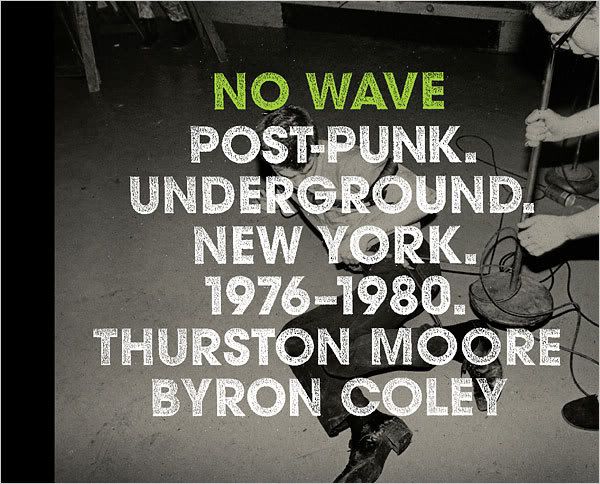
I have to admit that part of the reason I wrote a story about the new No Wave book by Thurston Moore and Byron Coley was simply to have the opportunity to talk to Moore once again. I’ve interviewed him a few times over the years and it’s always been enlightening and refreshing — his knowledge is immense, of course, but I also find his passion and engagement inspiring. Moore turns 50 in July, and what he shows me is that that’s not old at all. Hearing him detail gigs from 1978 as if they were last week is another reminder.
Over the next week few weeks, I’ll be posting interviews I’ve done with Moore, including talks about China and noise rock. Here’s the most recent one, on No Wave. We spoke by phone on June 2.
What was the genesis of this project?
It was an idea that Byron Coley and I had for a number of years. When I first met Byron it was in the early ’80s, when he was living in Los Angeles. He used to live in New York in the ’70s and he was a roadie for 8-Eyed Spy,* which was Lydia [Lunch]’s band after Teenage Jesus and Beirut Slump, just post the original No Wave scene. He was sort of hanging around that scene in New York in the ’70s, and I was around as well but I didn’t really hang out with the same people. He was a little more intimate with the figures in the book. I was kind of a loner on 13th Street, although I lived on the same block as Lydia during the Teenage Jesus days. I didn’t really pal around with her, which was probably a saving grace on my end.
Would you see her at the bodega or anything?
I would see her certainly on the corner of 13th and A at the laundromat there, and was always sort of taken aback by her because she had a nose ring. In those days, pre-modern primitive, it was shocking to see a young Caucasian girl on the street with a nose ring. So she was kind of fascinating to me, although I was extremely wary of her because I had only known her through her interviews, like in the SoHo Weekly News, where she was completely denouncing all that was sacred in the New York punk rock scene — Patti Smith, Television, etc. Which was completely insane, because punk rock was all about denouncing everything that came before it, and all of a sudden here was this 18-year-old girl in the SoHo Weekly News just trouncing our vanguard. [Laughs.] So I was a little confounded by her.
So she had some notoriety already?
She had some notoriety first of all because of the name of the band. Second of all people sort of knew about her because her personality was so brazen. I remember seeing the name Teenage Jesus and the Jerks in the Village Voice in a Max’s ad and just thinking, “That’s the most ridiculous name ever — what’s next?” And I didn’t really think anything of it. Then I kept hearing little things about it, and then I realized it was this girl Lydia, because she was in the newspaper. And then there was an interview with Joey Ramone in Hit Parader magazine, I believe, where he was asked who his favorite bands were, and he said Suicide and this new band Teenage Jesus and the Jerks. And I thought that was such a validation that I started taking it seriously.
But I didn’t have any money to go see these bands. Unless you were friends with them you probably couldn’t get in free, and I couldn’t really afford the $3 or $4 to get into CBGB or Max’s, to see a band that was my age living on my street doing something that I was doing anyway with the band I was playing with. If I had any money I would have used it to go see the Ramones at Hurrah’s or something, or at least buy some cigarettes or stuffed cabbage, [laughs] which was kind of the lifestyle. So I never saw Teenage Jesus, but I saw [Lydia] on the L train, like when I was going to work or something, and she would be standing there going God knows where. In retrospect I certainly wish I had seen them. I actually went to Teenage Jesus at CBGB and I didn’t go in through the door. I decided to go home instead, which I regret to this very day.
You got to the venue but didn’t go in?
I was there with a friend of mine and we were going to go in, and I was like, ah, I really can’t spend the three bucks. And I walked home, went to bed, and that was about it. It was early ’77 and I was just living poor on 13th Street and Avenue A. But that was not atypical. That’s just the way it was. You would sort of save your pennies up and go see the Voidoids or something. Sometimes you could sneak into these places. But the first time I saw these bands was really when they played for free at a loft gig.
The most specific moment I remember is going to the X Motion Picture Magazine benefit that Arto Lindsay and Seth Tillett put on at the Millennium. Everybody on the downtown art scene went to that. I went with all my artist pals. And there it was. Teenage Jesus at that point just didn’t play; Mars didn’t play because I think Sumner Crane didn’t want to play for free. But it was this total landmark event for that scene. That’s where I saw Theoretical Girls and the Contortions. That was supposedly the first Contortions gig where James [Chance] really took it upon himself to physically interact with the audience in a very negative way. And it was great. I was watching it in the buzz of this room, just thinking, “This is kind of fantastic.”
How old were you then?
I was just 20, probably. I was born in ’58, and I think the X Magazine thing was either late ’77 or early ’78.**
Everybody was into radical music on the scene, but our concept of it was Dead Boys, Ramones, Patti, Television, Voidoids. There were a lot of new, younger bands. I was in one of them, and we were very Talking Heads-influenced, because the guys I was playing with came out of the Rhode Island School of Design, the next graduating class after Byrne. So that was sort of our thing. But these guys weren’t referencing anything that we had any awareness of, really. It was such an anti-music gesture, but it was completely thrilling. It was very guitar-centric, even though James played saxophone and Adele Bertei played keyboards. But there were really sick, weird guitar situations going on, with Pat Place’s constant slide guitar drawing up against Jody Harris’s guitar in the Contortions. [Garbled comment about Lydia Lunch] ... but I knew Pat was coming out of her. That was her inspiration, page 1, was Lydia’s slide guitar playing, which on record is ferocious.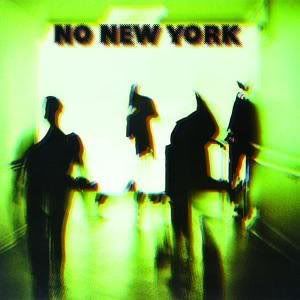 This is one of the great unheard periods of music — even the record that defined the genre [No New York] is notoriously difficult to find.
This is one of the great unheard periods of music — even the record that defined the genre [No New York] is notoriously difficult to find.
There’s lots of live tapes that have never surfaced that I’ve heard that would really change that situation. But dealing with the propriety of this music is a little difficult. I was really surprised when I was doing research for this book how little of the live documents exist on the Internet for download. But there are some very significant documents — the pink Teenage Jesus 12-inch is very good as far as showing what that band sounded like. No New York, despite people’s qualms about how it was executed, has fantastic tracks on it; specifically, the Mars tracks are wonderful. And the Mars stuff been issued here and there on different labels. There’s a few small labels that have put stuff out. Acute Records put out the Theoretical Girls record that was primarily Jeffrey Lohn’s side of the story of that band, as opposed to Glenn [Branca]’s. Glenn has released his side of the story quite a bit through ... [garbled]. Lydia is always documenting Teenage Jesus stuff. Atavistic is putting out a complete Teenage Jesus CD compendium this month.
Did it take 30 years to properly document it?
The only person who doing it then was Charles Ball, who was pals with Terry Ork. Terry Ork put out the first Television 7-inch, and the Voidoids. This was going on so currently with the first generation of punk rock it’s a little misleading for us to call the book No Wave. Post-Punk, because it’s really not post-punk; it’s happening at the same time as punk. Mars started in 1975. Their contemporaries were Patti Smith and Richard Sohl. It’s post-punk only because it’s music that could not have happened without the direct influence of punk, but it sounded nothing like what people knew of punk rock. Certainly Mars did not, even when they were called China. I remember seeing the name China and just thinking it was another new rock band at CBGB. Who would go see that? The fact that Lydia went to see that as a 16-year-old and said, “OK, this is what I want to do, this kind of music” — this completely bizarro sound that Mark Cunningham and Connie Burg and Sumner Crane and Nancy Arlen were doing.
This scene was small by any measure but in the book you narrow it down even further to sort of the bare essentials.
Oh yeah, it was a very tiny thing. It was a little, blippy scene. But you know, at that time even the punk rock scene at CBGB and Max’s, it was a downtown community. There was no real media eye, there was no Internet, we weren’t on TV. It was getting written about in London in the NME and therefore the rest of the world sort of saw it. But it’s funny — When Patti Smith came back on the scene years back and she started doing these events, one thing she said is that what’s changed is that everybody is in effect, everybody’s there — MTV, VH1, “The Legendary Divas” and all this sort of thing. She was so confounded by how many people were on the scene. Whereas back then you sort of knew who everybody was. You knew who the writers were, you knew who the photographers were. It was a handful of people.
That speaks to influence this music had.
Yeah, punk just obviously blew up and became involved with everybody’s consciousness. But No Wave — [Laughs.] We like the absurdity of how small it is. We kept our parameters really tight. There’s lots of adjunct activities that were happening around the No Wave scene. But we really wanted to keep it super tight as far as who were the prime instigators and the ones who really developed what is known as No Wave in New York City. We needed a cutoff point, and we cut it off as soon as anybody plays any semblance of rock ’n’ roll. Any kind of traditional aspect of rock, it’s over. When Lydia starts 8-Eyed Spy, forget about it. Or Pat Place starts Bush Tetras, it’s over. Arto Lindsay in the Lounge Lizards — no.
That’s how people progressed. They did sort of take on more traditional — it’s a sophisticated take on traditional aspects of rock music. [With] No Wave there was no take on rock music, except for, like, electricity and the instrumentation. But what they were playing, it was over before it began. It came out of the gate finished. It wasn’t even about development. The only band that maybe developed was DNA, because they lasted until like ’82. But what they were doing with classic lineup with Arto and Tim Wright and Ikue Mori, it had created its own standard immediately. It didn’t develop like Talking Heads developed.
There’s a quote in the book from Eno, who says he was attracted to it “as an art historian” because it resembled previous artistic movements where there was this explosion and then immediate implosion.
He knew it was this really interesting finished piece that was happening. Where do you take it? You don’t take it. It dies.
Was that clear even while it was happening?
No, because while it was happening nobody even knew that it was called No Wave, and as soon as it started becoming called No Wave it was already in sort of a dissipation mode. The first time I saw name [the term] No Wave was not in the SoHo Weekly News when Roy Trakin was interviewing Lydia, at least I don’t remember. I remember seeing it spray-painted in front of the CBGB Second Avenue Theater, which used to be the Anderson Theater, where the Yardbirds played. Hilly and his wife had opened up the Anderson Theater, renamed it CBGB Second Avenue Theater and attempted to have a bigger space for bands. I remember going there a couple of times and seeing Blondie and Patti Smith and Richard Hell. It was fun, but you knew it was a disaster because it was a seated venue and people were just smoking pot in there and drinking, and the fire marshals had their eye on it. It just couldn’t last, and finally they closed it down after month or two. And somebody had spray-painted on the front of it, “No Wave.” And I thought, “Oh, that’s kind of clever.”
Did you understand what it meant?
Well, no. I mean, punk had become new wave, and we were all sort of laughing about that, because it was this attempt to sort of commodify it and make it digestible. And then all sudden it got bigger, and Hilly had a theater, and then it was closed. And someone had written “No Wave,” and I was like, “Wow.” And then that’s when I started hearing more about those bands. So that’s my take on where that word came from: somebody had scrawled it on Second Avenue. But other people have different ideas about where that term originated. In retrospect, after doing all this research, I think it probably did come out of Lydia’s mouth. Because it’s certainly something she would say.
It’s interesting to hear you describe all of this as an outsider looking in, since you were there and most people would think of you as being intimately involved with this world.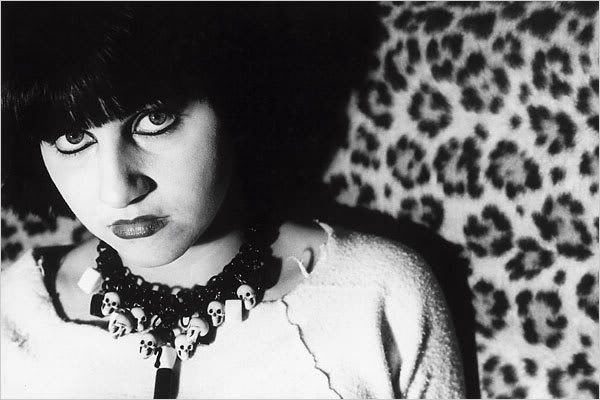 I was curious about anything that was happening in the neighborhood. I was a typical 20-year-old ’70s kid living in New York by myself, wanting to be in a punk rock band. But what resonated more with me was probably the downtown artists scene, as opposed to the leather jackets and safety pin scene that was not really that prevalent in New York to begin with. There was definitely this CBGB-Ramones-Dead Boys scene of kind of street-trash punk, but I didn’t go for that so much. I was more into going to Canal Jeans and buying 99-cent skinny lapel jackets [laughs] and hanging out the Mudd Club — or trying to get into the Mudd Club, actually.
I was curious about anything that was happening in the neighborhood. I was a typical 20-year-old ’70s kid living in New York by myself, wanting to be in a punk rock band. But what resonated more with me was probably the downtown artists scene, as opposed to the leather jackets and safety pin scene that was not really that prevalent in New York to begin with. There was definitely this CBGB-Ramones-Dead Boys scene of kind of street-trash punk, but I didn’t go for that so much. I was more into going to Canal Jeans and buying 99-cent skinny lapel jackets [laughs] and hanging out the Mudd Club — or trying to get into the Mudd Club, actually.
So that was more my milieu. But I only knew a few people. I moved to town knowing one person. Lydia tells the same story, coming to town and not knowing anybody except for recognizing Wayne County, who she was a pen pal of. Which I totally related to because I had written to Wayne County as a teenager too. [Laughs.] You know, “Dear Wayne.” He had a column in Rock Scene magazine, “Tips from Wayne.” So you’d write to these people. I remember writing to Lenny Kaye. He had a column called “Doc Rock.” So I really related to Lydia after I found out that she did the same thing. But she was far more assertive than I was. She came to town and would go up in people’s faces, saying, “I’m here, let’s get this thing going.” I was a bit more shy, more reserved.
So this is the third book in about a year that covers either No Wave specifically or similar periods in the history of downtown New York —
Marc Masters wrote a book that came out on a U.K. publisher, which takes sort of a different tack. He covers some of same ground in his interviews as far as history goes and the connective band stuff, but he basically takes the tack of following how the recordings document the scene. We don’t really talk about the recordings so much beyond No New York, which we wanted to get into because there was so much controversy about how it was made, and how it dissected the scene. Lydia told me when I told her we were doing this book, “Well finally someone who was there is doing it.” Which sets us apart from any other No Wave book, is that we were participants. So we really did have a feel for it.
When we pitched this book, it was something we were just going to do ourselves independently. And I had been talking to an editor at Abrams who I work with, and she said that Tamar Brazis, an editor at Abrams who had edited the CBGB book, that her next project was a book on No Wave. And I was like, “You’ve got to be kidding me. I need to have a meeting with her immediately and pitch Byron’s and my concept of what this book should be.” So I had Byron come down from western Massachusetts, and I think we kind of blew their minds a little bit, because we just had it completely detailed and laid out what this book needs to be.
I think the [publisher’s original] idea of No Wave was very broad, as opposed to what we thought it was. Which was like, it wasn’t broad at all; it can be looked upon as broad in its influence, but what it really was, as you said before, it was a little clique of a scene. And we wanted to portray it realistically as it was: as these people, these East Village habitués, the SoHo scene, and then these people who would sort of cross the camp geographically. Specifically people like Jim Sclavunos — who’s Mr. No Wave, [laughs] and who will be in town playing with Teenage Jesus for their one and only reunion show, on Friday the 13th. Which is going to be completely crazy. Of all the bands to get together to do a reunion, I can’t think of anything more far out than Teenage Jesus and the Jerks — even more so than the Stooges.
Was that at your prompting?
Oh yeah. I was visiting Lydia — she lives in Barcelona — and she had started play guitar again. She hasn’t played guitar for ever. She did some recordings with Halo of Flies, the Minneapolis band, these insane recordings. They’re great — some 7-inch just came out, she’s doing vocals.
I didn’t know Halo of Flies existed now.
Yeah, they’re sort of back. They just sound so damaged now, and she sort of adds to the carnage. And so she was really into playing guitar again. She was very hip about the book. She really gave us her time. [I told her] we’re going to have this gallery event that coincides with the publishing of it at KS Art on Leonard Street, and I’m going to have some music at the Knitting Factory afterwards, and you know what would be completely wild is if Teenage Jesus played one gig. And she said she’d do it. As long as I took care of it, she’d do it.
And you got James to do it?
Sclavunos? Yeah, he played bass [in the original band] but he will be playing “drum.”
Actually I meant James Chance.
Oh, James Chance. He’ll be around.† He was in the original lineup of Teenage Jesus and the Jerks. The only other performer is Information, which was one of the bands that did cross over to the East Village/SoHo scene — Chris Nelson.
So who will be there performing at this Teenage Jesus show?
Lydia, James Sclavunos, mystery bass player,‡ [laughs] and I think maybe Chance will play one song with them. But you gotta realize, these songs are like 47 seconds long. [Laughs.] Lydia is rechanneling the hate. Teenage Jesus and the Jerks were not a band you would see to have a good time. Even though a lot of people remember those shows fondly, they were a very mean band. The whole thing was a total affront to any congeniality an audience and a band would have with each other.
What was the publisher’s original idea for the book?
Downtown-New York-’70s kinda nightlife, No Wave. What could it have been? Probably Contortions, DNA, Basquiat, Burroughs and Blondie, Debbie Harry. Which is interesting because all of those people have associations with the No Wave scene. Debbie Harry, I think, loved Lydia and what she was doing, as did Chris Stein. Basquiat certainly was at those gigs, and bouncing around. He was always at Tier 3, he was always at the Mudd Club. Madonna was around, for God’s sake; she probably saw a Contortions gig or two. I tried to get a blurb from her, but I don’t know if the request ever got past her management’s desk. I did get a blurb from Bowie, that was kind of hip.
There was this highfalutin nightlife scene going on in New York, for what it’s worth. I think that what the editors initially thought a No Wave book would be was that real nefarious subterranea of downtown nightlife and the music scene. But I don’t think anybody could really identify it for what it was specifically. We could. We just sat down and gave them the game plan. We said, “These are the bands that are, that define No Wave; these are the events that define it; and these are the parameters.” That is it. Once it leaves these parameters it becomes No Wave-influenced, or it becomes something else. But as far as what defines the actual New York No Wave music scene, it’s these bands, these artists, these filmmakers, boom — and it’s over. It’s a finite scene, so it was really fun to deal with it as such.
Publishers usually want to sell books. Expanding the scope a bit would have brought this to a much bigger audience.
It also would have diluted it. And we sort of gave that argument in our editorial meetings. We met with the sales department, and we said, you know, there are figures in this book that have more cultural awareness than the primary subjects. Iggy is in the book, and Debbie is in the book, and Basquiat shows up in the book. Those weren’t bones we were throwing the sales department; they really do exist in the story. But we didn’t want to force that. And to the credit of Tamar at Abrams, she really let us go with our vision on this. It’s amazing that a publishing house as commercial as Abrams let us do this.
The black-and-white coffee table book treatment has the effect of enshrining artists and historical periods. Is it finally time for Lydia Lunch and James Chance to be on that same plane of New York bohemia with the Beat poets and Dylan?
Black and white made so much sense, because black and white was such a definite shade of what was happening on the scene then. It has this kind of noir take on it. Certainly there was color, but it wasn’t like the B-52’s or Blondie. That scene had such a rich archive of visual ephemera and materials, and the way it presented itself, the way the musicians presented themselves — they were so removed from the classic rock figures, not only in the rock ’n’ roll tradition but in the punk tradition, as nascent as it was then. You certainly had the ugly beauty of Johnny Rotten and Joey Ramone going on, but this was something else entirely. This was total weirdo nerd style going on. Arto was the last person you would think of as a guitar hero onstage. But he was fascinating because of that. And Lydia was not in any sense of the word what you would consider a typical female diva, even by punk rock standards. But she was completely alluring. As was Pat Place, who was this completely androgynous creature with the Contortions.
So the way they presented themselves visually, and the way the photographers were photographing them was to us a real treasure of an archive of a New York City aesthetic that was part of the lineage of downtown bohemia and Beat culture, and the radical counterculture of even the Peace Eye bookstore and that era of hippie, or something. So we really wanted to show that, and we wanted the book to act as much a book for the photographers. I think of Godlis and Julia Gorton, Lisa Genet, Stephanie Chernikowski — these people were shooting these bands at the same time they were shooting Patti Smith and the Ramones and Television. They knew these bands had an amazing look unto themselves.
There were so many more pictures we could have used. That was the hardest thing about making this book, excising photos for editorial sake, and the fact that there are archives of photos that people have who aren’t professional photographers. A few of which we used, but there’s quite a bit of those that exist in private collections that are not in this book, that are amazing. And there’s a lot of other ephemera — fanzine and flyer ephemera that could have been rife in this book.
Why now? Is there an element of nostalgia for a pre-gentrification New York?
A lot of musicians and artists — I mean fine artists as well as design artists — are very curious about that period. And because of the images that they do see, in old periodicals from the ’70s, when they look at old New York Rockers and such, I think they want to know more about it. And with bands like the Yeah Yeah Yeahs and the Rapture and what have you referenced as like a new No Wave kind of thing — which is kind of great in a way, except the big difference is like, in the original No Wave bands nobody knew how to play. Even though the Contortions could have gotten funky out of the gate, because they wanted to be this kind of funk thing. But so much of the band didn’t know how to play. Pat Place didn’t know how to play guitar. They just put it on her, and she saw Lydia play, and she got a slide and played. James knew how to play the saxophone. If you hear early live tapes or see early live Super 8 footage, they just sound like wall of cacophonous chaos. And it’s great. They did distinguish themselves as time went on, becoming a very amazing damaged funk band, but at first it was this blitzkrieg.
There’s a great picture in the book where there are two people playing guitar in front of a bunch of people in an art gallery or something, and the people near the front have their hands over their ears, and they really look like they’re in pain.
That’s one of the shows at Artists Space. There was a series of shows there in ’78. That’s Tone Death, which is Rhys Chatham and Nina Canal and Robert Appleton. Again, it’s not a huge audience either, is it. It’s just the SoHo scene and some people from the East Village No Wave world, cohabitating in this world. You can see Barbara Ess poking her head through the door. It makes you wonder what’s coming out of those amps. They’re not using huge amps or anything; they’ve got little Polytone amps. But it’s enough to completely mess with this audience’s head. [Laughs.]
Thanks, etc.
* Coley says he traveled with the band some but was never a roadie.
** According to a flyer in No Wave, the show was on March 11, 1978. Moore would have been 19 then, and Lydia Lunch 18.
† He was there but didn’t play (at least not at the early show).
‡ The “mystery bass player” was Moore.
Next: China (the country, not the No Wave band).
Links: Weasel Walter’s New York No Wave Photo Archive; Laura Levine’s shots of the street scene outside the book party/Teenage Jesus show; blog for Marc Masters’s No Wave book, and excerpts; Perfect Sound Forever’s interviews with Lydia Lunch and Robert Quine; my obit of Quine from 2004.
Back catalog: Al Green, Lou Reed, M.I.A., Stew.
2
comments
Labels:
interviews,
no wave,
sonic youth,
thurston moore
![]()
Friday, June 20, 2008
Press release of the day: Summer of misery
STAIND IS BACK
MULTI-PLATINUM BAND ROLLS OUT NEW FLIP/ATLANTIC ALBUM:
THE ILLUSION OF PROGRESS DUE AUGUST 19;
NEW SINGLE, “BELIEVE,” RELEASED TO RADIO AND iTUNES ON JUNE 24
WORLDWIDE SUMMER TOUR KICKS OFF JULY 4, INCLUDING DATES WITH 3 DOORS DOWN AND HINDER; INTERNATIONAL DATES WITH NICKELBACK SET FOR SEPTEMBER
Multi-platinum band STAIND has announced the much-anticipated release of THE ILLUSION OF PROGRESS (Flip/Atlantic), available August 19. The first single, “Believe,” hits radio and iTunes June 24. A worldwide summer tour kicks off July 4 in Muskegon, MI prior to band’s joining the 3 Doors Down bill on July 9 in St. Louis, MO. STAIND will also tour internationally with Nickelback beginning September 8 in Cologne, Germany.
Repeat: Staind is not only still making music, but it is also touring with 3 Doors Down, Hinder and Nickelback. Rivaled in awfulness only by the Counting Crows/Maroon 5 tour.
0
comments
Labels:
live,
press release of the day,
worst of
![]()
Thursday, June 19, 2008
Wednesday, June 18, 2008
Tuesday, June 17, 2008
Sunday, June 15, 2008
Teenage Jesus and the Jerks, oh my
Friday was a beautiful night in New York. Clear sky, cool breeze, some beers, and brutal, hilarious No Wave. Lydia Lunch commanded a Teenage Jesus and the Jerks reunion at the Knitting Factory, featuring Jim Sclavunos on “drum” and Thurston Moore as the mystery bassist. It was a celebration for Moore and Byron Coley’s wonderful new No Wave book, about which I had interviewed them a few days before.
Someone named djfrankieteardrop posted this video of the last song of the set, “Orphans” (there was, as Lydia states, “no fucking encore”):
For the record, Information opened the show, and were fantastic, with songs even shorter and more atonal than Teenage Jesus’. Here’s an old (?) video of the original song. I have no idea about the source here, but if nothing else, it’s good for audio comparison: Pitchfork.tv says: “Directed by porno trade mag editor Ivan Lerner in 1978, it cuts together Vietnam footage that almost captures the violence of the music.”
And here are Moore and Coley talking about the book:
Coming in a couple of days: Complete transcript of my interview with Moore, in which he talks about putting the book together, how he missed a chance to see Teenage Jesus back in the day because he didn’t want to spend the $3 at the door, and his addition to the mythos of the term “No Wave.”
TJ vid via BV.
0
comments
Labels:
no wave,
reunions,
teenage jesus,
thurston moore,
video
![]()
Friday, June 13, 2008
A conversation with Al Green
“I sing what I want to sing. ’Cause I’m Al.”
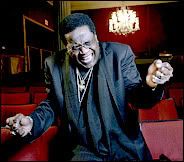 Listening to Al Green’s fantastic new record, Lay It Down, brought back memories of the strange and wonderful interview I did with him for his last album.
Listening to Al Green’s fantastic new record, Lay It Down, brought back memories of the strange and wonderful interview I did with him for his last album.
It took place on March 3, 2005, at the Apollo Theater. He’s royalty there, of course, and he was all guffaws and handslaps when he arrived with his entourage. But sitting down with me in the orchestra, he turned suddenly, preacherly serious, sermonizing in long parables, Biblical allusions and imaginary dialogues (between him and God, him and other people, and him and himself). He was candid, funny, raunchy, vulnerable, nonsensical and endlessly self-referential. I felt the awe, brothers and sisters.
A technical glitch in my tape recorder rendered the interview frustratingly incomplete. Right near the end, as he wound up a long allegory about Moses in the desert, the tape flipped, and 10 or so critical seconds are missing in which he connected the Scripture to his own life. Rev. Green ended the story in tears. Which is pretty much the way I felt when I played back the tape. Is it OK to say “goddammit” in an Al Green story?
Nevertheless, this interview stands as a career highlight for me, not just because I felt lucky to get his full spiel, but because the experience was so moving and mystifying. Looking back, though, I’m not sure I buy it when he says that in his old hits he sang about romantic love only to sell records. I think he meant it.
Tell me about being on the road. Are you on the road a lot?
Well, I’ve been on the road 76 shows last year. I did 76 shows, I cut a CD called Everything’s OK in the midst of the 76 shows. A video with Queen Latifah in the midst of the 76 shows. I did the Ray Charles, honoring Ray Charles and his life and all of that* during the 76 shows.
Why are you working so hard?
Because we are the chosen generation to carry light and truth to the up-and-coming, and to the young kids that be born after them. Yeah.
What do you mean?
It’s “I got sunshine on a cloudy on day/When it’s cold outside I got the month of May.” — “My Girl.” It’s “Sugar pie, honey bunch, you know that I love you/Can’t help —” OK? This says a certain thing. You’ve got to be able to have something to offer, and we have it to offer, the nucleus of it. Now, you can get over it, you can get under it, but the nucleus is: I love you. And they said it can only the be the nucleus if you mean it. If you really mean it, then you got the core of the thing. You got the gold. But if you don’t mean it, it ain’t worth foolin’ with it. Now, my mom told me that, and my mom is 83. She said, “If you mean it, Al, you’ll be the million-dollar baby. If you don’t mean it, it ain’t worth a dime.”
So it’s like something you put value in if you really, really, really mean it, that means I’m going to stick it out whether times are good or bad. I have listened to my own song when I was in a love crisis myself. I had to listen to my own song to hear what I was saying. “I’m so in love with you/Whatever you want to do is all right with me.” Well, why don’t you let me alone, let me do what I want to do? If it’s not being with Al, then, I mean, maybe there’s a season for that too? I mean, you said it: “I’m so in love with you/Whatever you want to do is all right with me/You make me feel so brand new/I want to spend my life with you.” OK, great. Do what you said. “I’m so in love with you/Whatever you want to do is all right with me.” Is it? And I had to say, “Dang, that’s my own words.” So I had to eat ’em. I said, [gulp sound] “Yep.” And once you stop chasing the butterfly it comes and lands on your shoulder.
So Willie Mitchell and I have been chasing this thing and chasing this thing for 30 years — couldn’t catch it. Now we stop chasing it and everybody said, “Oh, so that’s what he means.” “Love and Happiness.” God is love. Christ is the happiness of the world because he’s the reconciliation back to God. “Be good to me, I’ll be good to you/We’ll see each other walk away with victory.” And everybody going, “Oh, I didn’t know that’s what he’s talking about. I thought he was talking about me and Billie Jean out at the Holiday Inn, you know, 3 o’clock in the morning, you know, and we getting it on. He isn’t talking about that all. No, he did that to sell records. That’s to win you over.”
Did you mean it the first time around?
Mm-mm, no. I did it to sell records. I did “Let’s Stay Together” to sell records, because I know how to win you. Now that I got you, now can we get to my meaning, what I really meant by “Simply Beautiful”? “I’m Still in Love With You”? So she finally asked me, “OK, what did you mean?” And the meaning was that I really — If I was in New York City alone by myself and there’s a million women here, I really, seriously don’t want to be with nobody else but you. I mean, if they were at my disposal I really kinda like don’t want to be with anyone else but you. What sense would it make? “What are you doing? Where are you going with this?” Yeah. So until you get to that point you’ll always be wondering why. I learned that 35 years ago.
You got to be satisfied with yourself. When you look in that mirror you’ve got to be satisfied with what you see in that mirror. If you’re not, well, you got some things to work out yet. I learned that from some people older than me. When you look in the mirror, are you satisfied with what you see? And I just — I asked them, “What am I supposed to do?” They said, “I’ll tell you what, boy, if you don’t thank — Tell him that you appreciate what he’s done for you.”
See, he brought me a mighty long way. He brought me all the way. You got to be able to — “I want you to stand up and stick it out. Things ain’t going to go your way all the time just because you’re Al Green. You’re going to catch hell like everybody else. I’m going to make sure you catch it.” And then I asked the Rev. Williams, “Why?” He said, “Because we love you and I love what you’re trying to do. I didn’t say what you’re doing, I said I love what you’re trying to do.” I said, “Man, I just didn’t know it was going be this graphic.” He said, “Well, life is graphic. You either get it right or you get it wrong.” And we’re trying to get it right.
So I go home, it’s the family, the three kids — Kala’s got this leg, she’s 3. Trevor’s got me around the waist, he’s 9. And Al Jr.’s got me around the neck, he’s 12. And I’m on the floor laughing and wrestling with the kids and the old lady says, “School is tomorrow, I’ll drop them off if you pick them up.” That’s sharing.
On your new records, are you returning to something — your old sound, old messages, old spirit — or is it different?
I think you have to remain true to yourself. To thine own self be true, see. I go to the mirror again. You got to look in that mirror and you got to be satisfied with what you see. If you ain’t satisfied, you got to get to changing some things to make you happy. See, because life ain’t worth living if you’re not happy. If you’re not happy in it, baby, you’re just spinning your wheels.
But I’m happy. You know why? Because I know something that a lot of folks don’t know. And then again that which I know is so simple that a baby could — It’s like the Word. Some of the Bible is so simple a little child could walk in it and play in it. And then some of it is so deep, you’ll drown yourself if you ain’t careful. So Solomon said, “Don’t be too smart, because a lot of reading and studying wearies a man. Don’t be too dumb. You know, why should you lose your character and everything you own by foolishness.” So he said, maybe somewhere in the middle.
Between smart and dumb.
Between smart and dumb, right. You want to be somewhere in the middle. Daddy said if you’re at the top there ain’t but one direction you can go. And Mama said if you at the bottom, there ain’t but one direction you can go. So I figured like, ah, put Al around 4 or 5 ’round in there and just let me have my little fun. Look, I got a pocketful of little songs. I’m a preacher. I’m from a country town. What do I got? Nothing. I got a pocketful of little songs and some ideas. [Sings] “I’m so tired of being alone.” See? “Tired of on my own.” You see? “Help me girl as soon as you can, da da...” And the band go, “People say...” And I say, man, if you can’t feel that, [groans] ohhh.
See, this is something that will move you. It not only move the people, it moves Al. I get the feeling of hair rise up on the back of my neck. I feel the — Make you say that you [sings] “love me, doo-doo-doo/But you didn’t go for that.” [Laughs.] I said, “Oh, boy — did I say that?” God said, “I gave you the songs, Al.” I didn’t sing my songs for eight years. He said, “I gave you the songs, they’re beautiful songs, Al. Don’t let people tell you you can’t sing about love and a relationship or whatever the case may be. Everybody have them. And if those people hadn’t heard them songs they wouldn’t be sitting there listening to you.
Did anybody tell you you can’t sing your songs?
Oh yeah. The church folk said, “Hey man, you can’t sing that, you’re a preacher now. You can’t be singin’ no ‘Tired of Being Alone,’ ‘Let’s Stay Together.’ What’s wrong with you?” I said, “Well, you see, the songs you want me to sing is for Sunday.” They said, “Yeah.” I said, “But, see, God made [sloooowly] Monday, Tuesday, Wednesday, Thursday, Friday and Saturday.” God said, “Sing your songs. I gave you the songs. You sang ‘Sha-La-La (Make Me Happy).’ ‘I’m Still in Love With You.’ Come back home. Sing about people having hard-time relationships. Sing about a woman saying, ‘Hey man, I give up. I don’t want to deal with it. I’ll take the kids and move to an apartment.’ Sing about the breakup and then turn around and, you know the words, make up.”
What is the spiritual message in these songs?
You just felt it, and now you’re going to ask me the question. I just felt it when I sang “Tired of Being Alone.” I reached out to you just then and I pulled you in. There’s something hidden. Look at the photos now that they have now. It looks like this guy, he knows something. But I can’t really tell what it is. But he knows something. And on this album that’s just coming out March 15th, Everything’s OK, he knows something. But you can’t really put your finger on it. But he knows something. He’s got a look on his face, a certain sassiness on his face, but it’s so beautiful, it’s so magnificent. He knows something but I can’t really put my finger on what it is. [Inaudible whisper, then loud, hearty laughter.]
Are you preaching all the time?
I’m preaching all the time, man.
You can’t stop.
I tried to stop. And that’s another personal story. I tried to stop. But every time I get lonely I’d be in the — [sings] “Can’t get next to you, babe.” And that was in my heart. That was in my spirit. That was in my — [sings] “What about the way you love me?/Oh, simply beautiful.” That was just in your heart. How can you get away from your own heart? You can’t — [faint organ music in background] I like that music. Thank you. — But you can’t get away from your own heart. Your own heart says you’re tied to me and I’m tied to you. I am what you want to be or what you’re going to be. So when you start, you are THIIIIIS BIG. And the man is thiiiis big. And by the time you finish, trust me, you are THHIIS big, and the man is THHIIIIIS big.**
Who’s the man?
[Inaudible.] — He blesses. He says, “You can go any anywhere want to go. You can go to Harlem. You can go to Manhattan. Because I made not only this down here, I made heaven and earth. And ‘I am’ is my name.” I said, “Well, on that note we’d better be careful like how you behave yourself. You have to live a clean life. You had your time with that, you had your fun with that. You had fun with the girls and the Champagne and firing up a joint, you know. We had our fun with that. Now, can we get to the real deal? The real deal is that there’s love in the world. Tell the lonely people.” That’s it. [Laughs heartily.]
You see now, that sounds so simple — It’s like there’s a secret in the message. If you take a walnut or pecan, it’s got a hard shell around it. If you don’t dig at it you won’t never get the pecan or the walnut out. You have to dig; you have to work at it. You ain’t just going to walk into heaven grinning and not have any trouble getting there. You going to catch hell like everybody else. But if you work at that pecan and crack it, and get the walnut and get the pliers and crack the hull and peel it off and then get it out from between the — that grows between the veins of it and all that — get the shell off, and you put it in your mouth, you’ll say, “That was worth doing, I think I’m going to crack another one!” That’s life. That’s right.
But you have to crack the cases of life to be able to go to another one. Because if you don’t crack the first one, there’s no point in going to another one. Because I haven’t cracked this one yet. You have to live and grow. I see some people that I started with still doing the same thing they were doing when I met them. But I’m going like, “How are you going to continue? You got to grow with life. You got to change with life. You got to stop doing some things and start doing other things. You can’t stay the same. You’re not 21 no more.”
What kind of things do you mean?
I mean everythang. I’m talking about real people, real incidents. There are people who do everythang. I do that, and they will tell you I do it all. OK, great. But I’m saying, “Then you were 23. Now you’re 43. So you’re supposed to grow as you go along. You grow, some things you put away, you don’t do that no more.” Some things you learn better — I don’t need to do that now.
I’ve been told that when you tour you only tour through Saturday and then you go back to Memphis on Sunday.
I do that a lot.
To preach.
Right. I do that a lot. If I’m out too far and I can’t make it [back] they have five other preachers there. But still, those people at the Full Gospel Tabernacle, they’re used to having someone like Al that’s going to sit here and dig and dig and find out all the ins and outs of why God permitted Moses to marry an Ethiopian woman and God got mad at Aaron and Miriam for fussing at Moses’ [inaudible]. But when he called them out he never said nothing to Moses about the marriage at all. Or, God get angry with David about being with Bathsheba as long as she’s Uriah’s wife. But David said, “Well, I can think we can fix that. We’ll put Uriah in the battle, put him on the hottest line and withdraw from it.” Well, that’s committing murder. But here comes Absalom, and there you go.
Do you ever sing the Sunday songs on Saturday night? Do you sing gospel on the road?
Yeah. I sing what I want to sing. ’Cause I’m Al. And everybody think that’s what I should do. ’Cause he’s Al, he can sing what he want to sing. Sometimes I sing “Amazing Grace,” then sometimes I sing “Take Me to the River.” I may sing whatever I want to sing because I’ve been doing this 35 years. And then everybody say, “He’s Al anyway, he’s subject to do what ever he feels that’s right.”
I think that’s a good thing, because if you’re married your wife is going like, “Now when he comes home from the tour I don’t know if he’s going to make mad, passionate love to me or if he’s going to go to his room and I won’t see him for two days. Or if he’s going to play around on the floor with the kids. Or if he’s going to get on the computer. I don’t know what he’s going to do. He may pick up his guitar and write a song. I don’t know what he’s gong to do.” So that’s keeps her always going like, “Hello?” And I’m going like, “Hey, how you doing?” Or I may not say anything. And she’s going, “All right.”
And by the time you get in the door, well, there goes the first button. Because this lady has been waiting for you a whole month, while you’ve been to Poland and back. And when you have somebody actually, literally, really waiting for you, they kind of like don’t want to go through the greeting part and all that. [Laughter from women in back.] ’Cause by the time you say, “But baby, I’m trying to get the bags in” — there goes the second button. “Well really, honey, I’m just getting in, I’m trying to get” — there goes the third button. And you’re on your way back to the — [Laughs.] “ ’Cause hey man, I don’t have time for all that. I’ve been waiting and waiting and waiting. Come on, man.” And when you hear her say, “Yeah, that’s fine, come on” — When you know that I’ve actually waited-waited for you, and I’ve had nothing to do with anyone or anything else. And so when you get to that point in life when you’re playing all these clubs and people and Vegas and Reno and all these places and girls and beautiful women all over the place and they’re just, “Ooh, Al! Ooh!” But in Al’s mind, I’d rather be with the wife and the kids. And I love you, you’re wonderful, I hug them, and things are great, da-da-da-da-da — but my mind’s at home. Yeah.
I remember in a movie about you, you were talking about how you wrote the song “Tired of Being Alone.” You were playing the chords and you said that you were just obsessing over it —
Right, that’s true.
— and you kept playing it and playing it. Do you still write songs that way?
I write it because I get obsessed with what the song is, and I can’t control my behavior on how I feel about something. I just feel how I feel about it. I can’t — I don’t know how to stop. Like my little boy says, it never stops. I don’t know how to stop. Like my doctor says, “Al, please, go out on stage, do a good concert, but don’t just sing your heart out, man, just do a little bit and stop.” Well, that’s been seven, eight years ago and I ain’t stopped yet, because I don’t know how to just do a little bit and stop. If I’m going to do it I have to give it all, or I’d rather give none. You either get it all or you don’t get none. That’s just it. I can’t come and just do a little bit and do a cute little skit and then I’m ready to say, “Good night, good night!” Hell no. I’m going to say stuff like, [singing] “Spending my day thinking about you girl/Now being here with you and being near with you/I can’t explain myself.” I like that too, not being able to explain yourself, why you’re doing what you’re doing. I don’t know, it’s the way I feel. I like that.
And I think in Memphis, the reason I still stay there is because they’ve kind of gotten used to Al doing what he does. And I may drive an old Chevrolet truck, and everybody say, “I know that man got a better car than that.” I know it. But that’s the way I feel. Let me be me. So they don’t say nothing to me. They say, “Hey Al.” I say, “Hey!” The next day I may come in a Rolls-Royce and they say, “Uh-oh, that’s Al.” And they don’t say nothing. I says, “How y’all doing?” They say, “Oh yes, reverend, I’m quite fine, thank you.” It’s a different thing, man. You come up in an old raggedy car. “Oh hey Al, what’s going on?” But you come up in like a 2005 Benz, everybody go, “Oh, that’s Rev. Green.” But that’s when you have to reach out to them and say, “Hey, how you all doing, Mattie, brother Jones, how y’all doing?” They say, “Well, just fine, reverend, just fantastic.” But now if you’re in an old tore up truck like I’ve seen Morgan Freeman drive too, down in Clarksdale, he’s just driving because he just wants to drive. Morgan Freeman, you know he can drive anything he wants to drive. He ain’t interested in driving. He just get in that old truck and go down to his bar and open up his restaurant and act like normal people. Somebody say, “Hey Morgan.” He say, “Heeyyy, Mr. Jones,” keep on driving. Well, I was in Wal-Mart the other day and — “Hey Al, how you doing?” I say, “Hey, I’m trying to find a scarf — see, I found it, yeah.” [Laughs.] They say, “Al Green going to Wal-Mart, give me a break.” What’s wrong with going to Wal-Mart? I like Wal-Mart. In fact I can find everything I want there.
I’m not a big shot. I’m an average person. And I hurt like anybody else. I bleed like anybody else. I’m not a Mr. Superman type of guy. I’m just an average Joe Blow guy that has a little pocketful of little songs, and that’s all I got to my name. And that’s it. I’m not great, I’m not fantastic, I’m not a prince, I’m not a king, I’m not any of these things. In fact, if I get a meal tonight I’ll be happy. And then I’ll thank God for that too. Thank you, Jesus. And I’m happy about that.
You know how God has done me? He put me waaaaay up here where I was a superstar, blah blah blah. And then he brought me YAAAAAM! — way down to the valley. So low, son, I had to fast and pray for 21 days to try to understand who is Al, what is Al, and what are you doing to me? Said, “I gave you the songs, Al, aren’t they wonderful songs?” I said, “Yes, sir, but the people said I can’t sing these songs over here,” blah blah blah blah. He says, “Well Al, life dictates that you can sing what I give you to sing. People are good at being judges but I’m the only real judge. There’s a lot of judges in the world. But you listen to what they say and keep on singing.” I said, “What about the joy? And that unspeakable gift?” And he said, “I’ll give you that too, because you’re mine.” I said, “OK.” “You’re from the house of David, out of the house of David. And you’re the children of Solomon’s servants. And Solomon was the son of David.” I said, [whistle] “All righty.” You see but you have to — they call the son of man. Hey — son of man, son of David. And Jesus himself stopped and says, [inaudible] He said, “My eyes — that I might see.” Jesus says, “See.” [Snaps fingers.] He went in town with them, seeing.
Life becomes difficult when you try to put drama to it, you try to make it hard. Christ didn’t make it hard. He told him, “You want to see? See.” [Snaps.] You see. But you want to go through all this mumbo jumbo, and [laughs] chewing up a bunch of vines and stuff, and shaking a bunch of dust around. You probably won’t get much done. But if you trust in a thing you ought to be able to speak that thing, and immediately [snaps] the words go out of your mouth and they go out to accomplish that for which they were intended. Because you’re son of God. See? God called you a son. God said, “The servant don’t know what the master do. But I’ve told you and therefore you are no more servants but you’re now sons. But you got to act like it. And you got to live like it.”
I’ve been here for three days. I ain’t done nothing. I ain’t going nowhere. But doing this. ’Cause I don’t have a desire to be nowhere. I remember I used to come to New York. I didn’t even have a hotel and I was running over to people’s houses, trying to find out what’s happening and what’s going on and get into it. But you learn from that. You learn from your mistakes.
How many times have you played here at the Apollo?
I can’t count. I can’t, I really can’t. I started here, though, after my first song, “Back Up Train.” And when I first came here they wouldn’t allow me to sing but one song — that was “Back Up Train” and then get off. [Laughs.] I thought that was very rude. I said, “I got all these songs, you know, and they made me rehearse all these songs, I should be able to sing at least three of them.” They said, “No, you sing ‘Back Up Train,’ Al, and come off.” So I sang my “Back Up Train” and I came off. But I played on, I got a chance to do a whole show just like God said. “You just be patient. Trust me, not you. You’re not Mr. Great Great. You’re just flesh and blood. You ain’t nothing. You’re a ball of clay. I made you. And seeing that I made you, I love you and I want you to do good, Al. Try to do good. Because I want you to live with me. And I want you to live forever.”
I want to live forever. Don’t you want to live forever? I said, “God, I sure wish I could live forever.” And once I got that thought in my mind I went out to seek how I might live forever. Live forever. See, that’s important. ’Cause I heard it in a movie once. A guy in a movie, Lancaster, said, “I sure wish I could live forever.” That haunted me for three years. To live forever — wonder how would you do that? Just like I said of the house of David. Say well, “Jesus comes and makes this statement, ‘Who shall believeth in me shall never die.’ ” But if you look at the world, since the world began people have been dying all the time. Now you got to crack that nut and find out what that means so you can get into that. “Who shall believeth in me, he don’t die. Die for what? I’m light. I am light.” And we have to understand what Moses meant. “Who should I tell the people when I get down to Egypt, who should I tell them sent me?” He said, “Tell them ‘I am’ sent you.”
These are little nuggets of life that you know that you — you got it. [Laughs] I can see it in your...
Yeah, I got it.
Yeah, I think you got it.
They are riddles, you know.
You get little blushes, little red blushes in your face, too. You see, because these things, they’re little riddles but you got to work them out. And once you work them out you can be the happiest, freest man in the world. Because I know the secret to what — Life ain’t about richness and drunkenness and a bunch of women and a bunch of money stuffed somewhere. That ain’t happiness. I’ve had money, I’ve had richness, I’ve had a bunch of women and I had all that. That ain’t happiness. Do I look high to you? I’m afraid not. When I was child I acted like one. When I became a man I started acting like a man. I don’t need to be high to do no show. I thought I’d need to be high to do every show. So me and Johnnie Taylor was trying to get Eddie Kendricks to smoke a joint. And Eddie Kendricks said, “Oh no, I got to do my show!” And Johnnie Taylor fell out, said, “I don’t know how the damn fool can do a show without one!” [Laughs heartily.] I’m sorry, but — OK, but that actually is real life. And Johnnie Taylor said, “I don’t see that how that damn fool can do a show without one.” So we all cracked up because, you know, it was funny. But then again, as you come into that you see what that is. And say, “Well, I don’t want to be governed, I don’t want nothing to rule over me, over my spirit, over my activities, over my mind.” Crack and all this here. I don’t want none of — Be looking, says, “That curtain is moving over there.” And I’m going like — I’m into another high — Some guy doing his business — I’m going, I said, “That curtain moving over there?” He said, “That curtain is moving over there.” I’m going like, “OK. I’m going to get the hell out of there. ’Cause if that curtain is moving, I’m gone.” [Laughs heartily...]
[...then suddenly serious.] Because these people don’t know how to be happy. That’s why they own all these things. They don’t know how to be happy. Let’s go back the beginning now. Look in the mirror. And be satisfied with what you see. See?
Are you feeling satisfied?
I’m beginning to think I’m learning — I’m learning what it means, some of the secrets. It ain’t about a bunch of money.
That’s all, just beginning?
Yeah. I’m beginning after 35 years. I started with Willie in 1970. So I’m beginning now to learn to trust in God. I’m beginning to learn not to trust in Al. What’s Al? Little ball of clay. [Sings very fast] “Tired of being alone/Tiiiired of on own/Tiiiiiiired” — yeah, right. Now what else is Al? Lord, I thank you. You been so good to me. You helped me when I was waaaaaaaay down in the valley, all lost. [Getting agitated.] There was nobody to help us. There wasn’t but 12 of us. And the sand was so hot to your feet. No water. Tongue parched. Coming through the wilderness with — Somebody said, “I wonder, can God — you claim he’s so much of this and that — I wonder, can he provide us food, out here in the wilderness.” Somebody got down on their knees and prayed, and said, “Lord, I know you’re [inaudible]. But I just wonder if you...” — Quails come flying in. They wasn’t dead before they hit the ground. But man, after a while those people had two or three feet worth of quails. They had to stay up all day and all night. And then they came to the rock. They said, “We’ve been without water for three days.” And people started to talk about, “We need to stone Moses out there.” And Moses and Aaron fell on their faces, and God said, “Go speak to — tell the rock I said...” Oh shit. [Laughs.] Everybody had something to drink that day. Although Moses lost his opportunity to enter into the promised land, everybody still had something to drink. Because when Moses hit that thing water came out there to feed over 600,000 people, plus the animals and everything else.
[Tape flips.]
... lady come out of the store, says, “You had something to eat?” And I said, “No, ma’am.” [Long pause. Cries.] OK.
Are you all right?
Thank you.
Thank you. Thank you very much.
* Genius: A Night for Ray Charles.
** He was illustrating this with hand gestures. The idea, I think, was that when you’re young and proud, you think you’re hot shit (arms wide) and God is insignificant (a pinch), but when you get older and wiser and humbler, you’re decent-sized (I think he was measuring a foot or so between his bands) while God is huge (fully extended arms). Got it?
0
comments
Labels:
al green,
interviews
![]()
Thursday, June 12, 2008
Essie Jain shreds on Eighth Avenue
I always have fun doing my weekly interview for Popcast, the Times’s music podcast. Recently I’ve talked to Joan as Police Woman, Reggie from the Black Kids, Donald from the Virgins and Eli “Paperboy” Reed.
This week there’s something very special: Essie Jain, a talented young British singer-songwriter who lives in New York, came in with her guitar and played a beautiful version of her song “Stop” live in our “studio” (converted cubicle — hats off to sound wizard Pedro for making the most of the circumstances). The download is here; the interview begins at about the 12 minute mark, followed by the performance. Enjoy it, and subscribe to Popcast — which also includes record reviews and other assorted audio delights — here.
0
comments
Labels:
audio,
essie jain,
interviews,
me
![]()
Wednesday, June 11, 2008
Yet another M.I.A. update: Stet Europe cancellation ... or is that just U.K.?
Despite what her record label says, M.I.A. told New York magazine’s Vulture blog that her European tour is definitely canceled, as she had announced from McCarren Pool on Friday. Or at least her “U.K. tour,” she said, allowing for a certain bullshit factor.
Her MySpace page has numerous European festival dates listed throughout June and July. No U.K. dates there, although she appears to have had at least two lined up: Dublin (which confirms that it’s canceled; also, that’s not the U.K.) and London (which as of this writing is still selling tickets.)
“My manager was supposed to cancel it yesterday,” M.I.A. told Vulture on Tuesday, “but he was watching football — don’t tell anyone — and he forgot.”
Whatever. I’m done with this. Anyone whose travel plans have been screwed up, I feel for you.
0
comments
Labels:
live,
MIA,
news
![]()
Tuesday, June 10, 2008
M.I.A. update: Nope, not canceling Europe, apparently
Last Friday, as noted here — and here and here and here — M.I.A. announced from the stage at McCarren Pool that she was canceling her European tour, and that McCarren would be her last show for her current album. That implied that she might not be playing Bonnaroo, as she is scheduled to do this Friday. No reason was given.
It took several days, but I’ve been told by label representatives that this is probably not true, and that all booked dates are presumably still on. Although as is somewhat standard with M.I.A., nobody seemed to know precisely what was going on.
See update, above.
0
comments
Labels:
live,
MIA,
news
![]()
Sunday, June 8, 2008
‘Delinquent Girl Boss: Worthless to Confess’
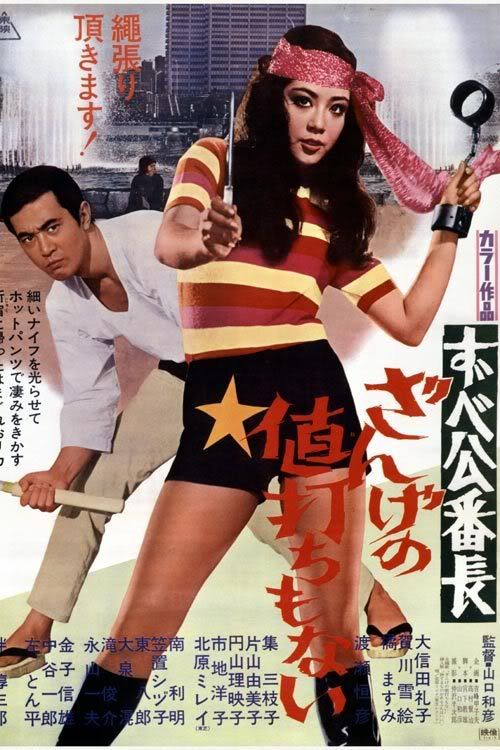
‘Zubeko bancho: zange no neuchi mo na’ (1971), starring Reiko Oshida, a classic of sukeban/pinky violence.
0
comments
Labels:
pinky violence,
posters
![]()
Saturday, June 7, 2008
‘The Spirit’: Femme fatale
Frank Miller is really going to town with the posters for his upcoming adaptation of Will Eisner’s great superhero-noir strip.
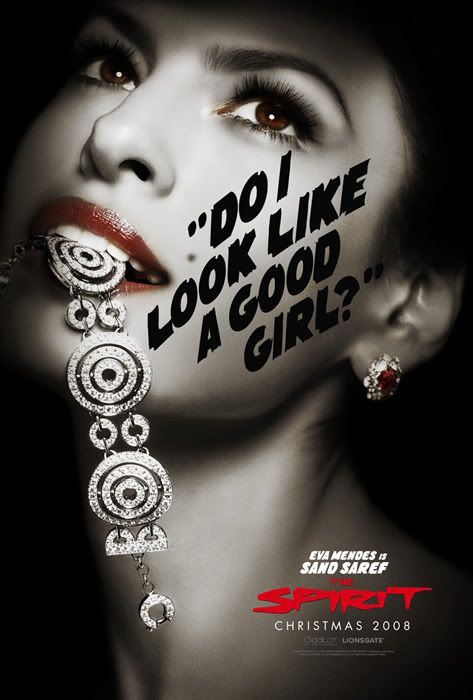
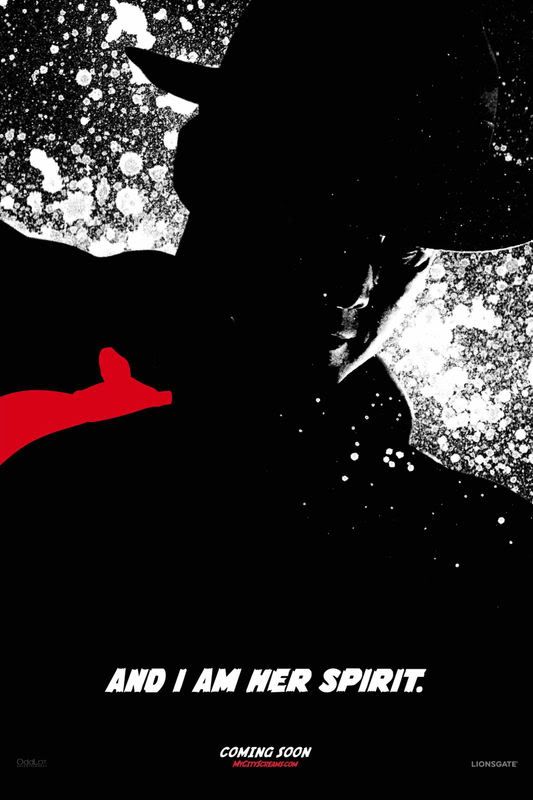
0
comments
Labels:
posters,
the spirit
![]()
Friday, June 6, 2008
M.I.A. cancels European tour?
M.I.A. announced from the stage at McCarren Pool in Brooklyn tonight that she was canceling her upcoming European tour, and that McCarren would be her last show “for this album” (I believe that’s what she said). That was news to me, and I don’t see anything about it online. In addition to a bunch of dates in Europe starting with the Sonar festival in Barcelona on June 21 (which still lists her on the program), her MySpace page still has her Bonnaroo appearance listed for June 13, and the Bonnaroo site has that too. (Also, I assume she’s not counting that $250-$7,500 benefit at MOMA on Tuesday.) I have made an inquiry with M.I.A.’s representatives and will post the response, but does anyone know what’s up?
3
comments
Labels:
live,
MIA,
news
![]()
Thursday, June 5, 2008
Tuesday, June 3, 2008
Monday, June 2, 2008
Concerts I missed because it was just too nice out this weekend and I didn’t feel like doing anything
- David Byrne’s building-as-instrument thing
- Wire at South Street Seaport
- Raconteurs
- Anvil at BAM, along with the film screening
- Alan Licht and Aki Onda
- Paul Burch
- Bang on a Can marathon
- Fern Knight
3
comments
Labels:
lists,
live,
me
![]()
Jammyland, RIP

My head hangs with shame over my failure to visit Jammyland before it was to close on Saturday. Excuses: a lot of work and such beautiful, beautiful weekend weather. But when reporting my piece about the twilight of New York’s record stores, I was told by the owner, Ira Heaps, that the lease was up at the end of May, and that the store would close if he couldn’t find an affordable alternative. Last Thursday I called and spoke to Chuck, NYC music retail legend, who confirmed that the last day would be Saturday (May 31), and that it didn’t have a new home. Online operations, however, would continue, he added.
Did anyone make it out for Jammyland’s farewell? Reminiscences welcome. I’m still enjoying the pile of records I bought there about six weeks ago, but I’m bummed that I didn’t buy a T-shirt.
More on record stores: Manhattan record map, running store tally, Record Store Day postmortem.
0
comments
Labels:
music biz,
news,
obits,
record stores,
the indies
![]()
From the archives: Simon Doonan gets ‘nasty’ on me
Suddenly remembered: The time Simon Doonan wrote an angry column in the New York Observer about my negative review of his book Nasty. In a roundup in the Times Book Review three years ago, I called his book “a memoir of style consciousness and gay life never quite as witty as it pretends to be,” and said that “to hear Doonan tell his story, it’s a wonder not everyone raised in mid-century Reading, England, turned out to be as foppish and superficial as he did.”
Doonan flipped out, lamely playing the homophobia card. “Is ‘foppish and superficial’ some fab new Old Gray Lady code for ‘gay’?” he said of this “daringly un-P.C. stroke of [my] pen.” (The definition of “fop” notwithstanding, his accusation is ridiculous; his sexual orientation has nothing to do with his being a mediocre writer.)
“Instead of reviewing my book or my writing,” Doonan said in the column, “the reviewer, one Ben Sisario, chose to focus on me and what he saw as my underexamined self-image.” Though parts of Nasty are very amusing, it became painful to see that he believes so strongly that he must cover up what he believes is his essential ugliness: “It is your duty not to inflict your innate troll-like appearance upon the people around you and to do everything in your power to camouflage it,” he wrote. This idea is repeatedly called “life-enhancing.” But I found it sad and self-loathing.
I got more enjoyment from his loathing of me — the best thing anyone has said to me, ever, is “fop off!”
0
comments
Labels:
li’l nuggets o’ hate,
me,
reviews,
we media whores
![]()
